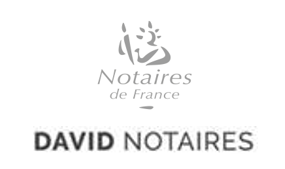You are an expatriate or a foreigner looking to buy a property in France?
David Notaires – Aix en Provence recalls in this article the main stages and the legal requirements applicable when purchasing real estate in France.
1 – The main stages and the usual deadlines when buying a property in France
It usually takes between 2 and 4 months to close a real estate purchase in France. Here is a summary of the steps and deadlines :
➡️📜Offer to purchase
➡️✔️Validation by the seller (within 7-10 days)
➡️ 📂Transmission (by the agency and the parties) of the information needed for the draft of the preliminary contract
➡️🖋️Signing of the preliminary contract (2 weeks-1 month)
➡️ 📬 Sending of the preliminary contract and annexes to the buyer
➡️⏳Cooling-off period (10 days)
➡️ 🖥️ Administrative process (dealt with by the notaire)/validation of the financial means by the purchaser (2-3 months)
➡️🖋️Closing (signing of the deed of sale and handing over) ✅
2 -The professionals to contact when buying a property in France
Mandatorily:
⚖️ the notaire(s) for the deed of sale
🏦 the bank for the transfer of funds
Most likely:
🏡 the real estate agent for the search of the property
💬 the sworn translator for French comprehension
🌎 the consulate for the certification of your signature abroad
The first person you will probably be in contact with is the real estate agent. S/he is in charge of the search on your behalf and/or the sale on behalf of the sellers. S/he will communicate your offer to the sellers, containing both the price and the conditions of the purchase.
It is therefore important to be clear about :
- first, the type of property you are looking for;
- second, the price you wish to pay;
- third, he financing conditions (loan or cash);
- finally, any specific conditions regarding your purchase.
The offer to purchase must contain the basis of your agreement: property address and identification, price, main conditions and in particular financing conditions. Then, once this offer has been validated by the sellers, you can immediately contact your notaire.
In France, you can choose your notaire. Each of the seller(s) and buyer(s) can therefore, if they wish, be assisted by their own notaire. The same unique notaire can also assist both parties.
3 – You can benefit from the advice of a notaire as early as the preliminary contract signing
The preliminary contract is binding and contains all the conditions of the sale that will later be included in the final deed.
That is why, although the real estate agency may use a standardised form, we strongly recommend that you ask the notaire to draw up the preliminary contract.
You will thus benefit from the complete legal analysis of all the documents, his/her advice and tailor-made contractual clauses right from the beginning.
The notaire will then be responsible for drafting both the preliminary contract (“compromis” or “promesse de vente”) and, once all the administrative formalities have been completed, the final deed of sale.
Therefore, s/he will be able to provide you with optimal follow-up.
4 – The personal information your notaire will need
In order to ensure the legal and tax compliance of the sale, the notaire will ask you to prove your identity and nationality. You will need to send your passport and, sometimes, your (translated) birth certificate and marriage certificate (if any).
Moreover, it will also be necessary to declare your home address and your tax residency.
Finally, if you are married, the notaire will need to identify your matrimonial regime. Depending on the applicable regime, you may or may not be able to buy (and contract a loan or a mortgage) on your own, and the purchase may be considered joint/common property or personal asset.
5- You may withdraw from the purchase within ten days
Are you buying a flat or a house for residential use? If so, you have a cooling off period of 10 days. During this period, you can decide, without any specific reason, to no longer purchase the property.
In this case, the sums paid at the time of the preliminary contract, and in particular the deposit, will be fully refunded to you (except for any costs already incurred).
The 10-day period begins on the day following:
- the first presentation of the registered letter/e-mail with acknowledgement of receipt,
- or the hand-delivery of the preliminary contract with annexes.
6 – Plan your money transfer in advance
The origin of funds
It is compulsory that the funds you transfer for the purchase come from an account in the precise name of the buyer.
This means that :
- If you are buying alone: the funds must come from an account in the buyer’s name only;
- Conversely, if you are buying as a couple: the funds should ideally come from an account in the name of both spouses;
- Finally, if you are buying through a company: the funds must come from an account in the name of the company.
Under no circumstance will the notaire be able to accept a transfer from an account that is not in the name of the purchaser. Indeed, this is contrary both to the legal standards and to the anti-money laundering rules in force.
For example, the director/owner of a sole proprietorship company buying a property in his own name cannot transfer funds from a company account.
Ideally, we recommend that you open a bank account in France. This will enable you to anticipate the transfer of funds from abroad to France. You will then be able to easily make the transfer to your notaire from your French account.
In France, funds relating to the purchase of a property shall be transferred by bank transfer. They go through the notaire’s books as s/he is responsible for paying the taxes and costs relating to the sale.
Payments to plan
There are usually two stages :
- First, the preliminary contract. You will have to pay an interim payment on fees (usually between 300 and 600 euros) and a security deposit (usually between 5 and 10% of the price).
- Second, the final deed of sale. The payment corresponds to the price, the agency commission, the purchase costs and the reimbursements due to the sellers if any (co-ownership charges, property tax, etc.). From the total amount will be deducted the sums already paid at the preliminary contract.
7 – You can prepare an online power of attorney for your property purchase in France
Do you live far from France and wish to avoid costly and time-consuming return(s) for the closing?
It is now possible to arrange for a power of attorney to be signed remotely by videoconference with your notaire. In this case, you will need to validate the draft deed and the conditions of the purchase, and then appoint the person who will sign the deed on your behalf.
Therefore, this entirely digital process makes investing in France much easier for people living abroad, especially in these times of global pandemic.
8 – The deed of sale must be drawn up in French
The notaire must make sure that you fully understand your commitments and must justify about it in the deed itself.
Consequently, if you do not understand French or have a poor understanding of it, s/he will require a sworn translator (unless your notaire is bilingual in your mother tongue). Either consecutive interpretation during the meeting or a written translation of the deed should be therefore provided.
The cost of a sworn translator can be relatively high and his/her schedule can be quite busy. We advise you to enquire in advance to ensure the availability and rates of the person you choose.
The list of translators by language is available on the website of each Court of Appeal.
Buying a property in France: conclusion
To conclude, buying a property in France when you are a foreigner or living outside France is possible. Recently, it has even been made possible to do so fully online.
So it is very important to surround yourself with the most qualified professionals to help you through the process.
Your notaire will be a first-rate legal support. In addition to the main features of your purchase, s/he will be able to provide you with information on the most suitable tools to manage the French property and advise you on estate planning.
For David Notaires – Aix en Provence, Elodie Letouche

